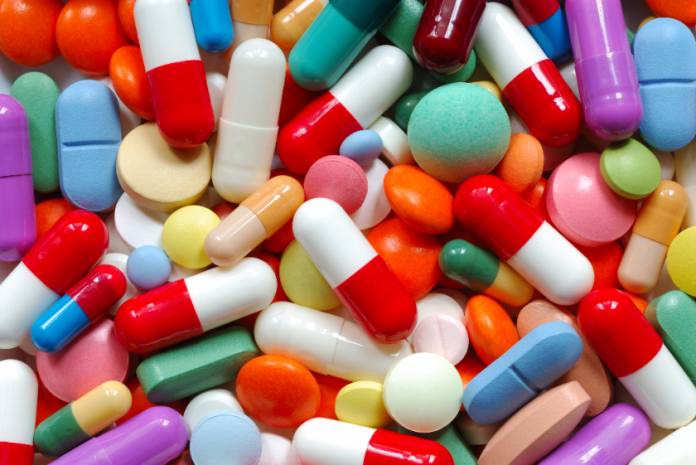
Chances are you and your family use over-the-counter and/or prescription medications. While many of these drugs provide much needed relief or benefits, they also come with a wide range of side effects. Among those adverse effects is one many of us overlook: the depletion of essential nutrients.
Fortunately, a little knowledge can help you remedy this situation. For example, you may choose to switch to another medication that doesn’t have this side effect, find a natural treatment option, boost your intake of foods rich in the nutrient that is affected, and/or you can take a supplement or two to restore levels of these nutrients. In any case, it’s suggested you talk with a qualified healthcare professional before you take these steps and, if necessary, have your nutrient levels measured.
Read are you taking dangerous OTC pain killers?
Common drugs and their impact on nutrients
Are you or a loved one taking any of the following common drugs? If so, check to see which nutrients may be jeopardy. In some cases, just one or two nutrients may be impacted, but other drugs can have a detrimental effect on numerous ones. Therefore, it is essential to eat a varied, nutrient-rich diet (e.g., lots of fruits and vegetables, whole grains, nuts and seeds, beans and legumes, all organic when possible) and supplement when necessary.
ACE inhibitors (for high blood pressure). If you have high blood pressure, your doctor may have prescribed one of the following medications: benazepril, captopril, enalapril, lisinopril, quinapril, or ramipril, among others. These drugs can reduce levels of zinc, which is important for hormone production, immune function, digestion, and fighting inflammation.
Acetaminophen. Commonly sold as an over-the-counter medication (e.g., Tylenol), acetaminophen is used to treat fever and pain. Long-term use may result in depletion of coenzyme Q10 (an antioxidant essential for energy production) as well as glutathione, a potent antioxidant used by nearly every cell in the body.
Antacids and acid-suppressing drugs. Suffering with ulcers, chronic heart burn, or other tummy symptoms? Then your doctor may have prescribed H2 inhibitors or proton pump inhibitors, such as famotidine, lansoprazole, omeprazole, or ranitidine (some of these are available over the counter). Nutrients that can be depleted, especially with long-time use of these products, include beta-carotene, the B vitamins B1, B12, and B9 (folic acid), and the minerals calcium and zinc.
Read about heartburn: avoid antacids and proton pump inhibitors
Antibiotics (i.e., penicillin, macrolides). Use of these two categories of antibiotics can have a negative effect on levels of B vitamins (i.e., B1, B2, B3, B6, B12, B9 [folic acid], biotin, inositol; important for nervous system health and energy production), and vitamin K as well as destroy healthy intestinal bacteria. Named antibiotics in these groups include amoxicillin, azithromycin, erythromycin, and penicillin.
Antidepressants. Use of the tricyclic antidepressants amitriptyline, clomipramine, doxepin, imipramine, and others in this class may result in depletion of sodium (necessary for fluid balance), coenzyme Q10, and vitamin B2 (riboflavin; benefits nerve health).
Beta-blockers (for high blood pressure). Another group of drugs for hypertension are beta-blockers, which include Atenolol, Corgard, Lopressor, Metoprolol, Tenormin, and Toprol XL. These drugs can affect chromium (important for metabolism of blood sugar) and coenzyme Q10 levels as well as that of the hormone melatonin, which is important for regulating your sleep/wake cycle.
Corticosteroids. For the millions of people who suffer with asthma or allergic rhinitis, corticosteroids (e.g., Beclovent, Beconase, Flonase, QVar, Vancenase, and Vanceril) are too often the norm. Nutrients and hormones you need to keep an eye on include beta-carotene, calcium, folic acid, magnesium, melatonin, potassium, selenium, vitamin B6, vitamin D, vitamin C, and zinc.
Nonsteroidal anti-inflammatory drugs (NSAIDS). Drugs in this category are typically over-the-counter and include ibuprofen, naproxen, and aspirin. Folic acid is the nutrient typically affected, while aspirin can also deplete iron, potassium, vitamin C, and zinc.
Oral contraceptives. If you are taking synthetic or semi-synthetic birth control, you may experience a depletion of folic acid, magnesium, and vitamin B6.
Statins (for high cholesterol). These are the most commonly prescribed drugs to treat high cholesterol and include atorvastatin, fluvastatin, lovastatin, pravastatin, and simvastatin. The nutrient affected by statins is coenzyme Q10.
How to restore nutrients
Taking supplements is an option when you need to help restore and replenish nutrients that are lost due to use of medications, but eating natural whole foods is the preferred approach. Here are some of the richest food sources of nutrients that can be depleted when taking some over-the-counter and prescription drugs.
- Beta-carotene: carrots, pumpkin, sweet potatoes, kale, spinach, collards, cantaloupe
- Biotin: eggs, almonds, peanut butter, wheat bran, avocado
- Calcium: raw milk, kale, sardines (with bones), broccoli, yogurt and kefir
- Coenzyme Q10: grass-fed beef, herring, sesame seeds, pistachios, broccoli, cauliflower
- Folate (folic acid): dark leafy greens, asparagus, broccoli, citrus, beans, lentils, avocado, okra
- Inositol: lecithin granules, wheat germ, liver, brown rice, citrus, nuts, molasses
- Iron: red meat, seafood, beans, dark green leafy vegetables, dried fruit, iron-fortified cereals and breads
- Magnesium: spinach, Swiss chard, pumpkin seeds, yogurt, kefir
- Potassium: avocado, acorn squash, spinach, sweet potato, dried apricots, pomegranate, coconut water
- Selenium: Brazil nuts, yellowtail tuna, sardines, halibut, turkey
- Vitamin B1 (thiamin): beef, nuts, oats, oranges, eggs, seeds
- Vitamin B2 (riboflavin): beef liver, natural yogurt, mushrooms, spinach, almonds
- Vitamin B3 (niacin): turkey, chicken breast, peanuts, mushrooms, green peas
- Vitamin B6: turkey breast, grass-fed beef, pistachios, pinto beans, avocado, sunflower seeds
- Vitamin B12: clams, liver, fortified cereals, fortified tofu, low-fat cheese, eggs
- Vitamin C: oranges, red bell peppers, kale, Brussels sprouts, broccoli, strawberries, grapefruit
- Vitamin D: sardines, salmon, herring, tuna, eggs, fortified milk and tofu
- Vitamin K: kale, spinach, collards, mustard greens
- Zinc: oysters, toasted wheat germ, pumpkin seeds, spinach, nuts, dark chocolate
SourcesAmerican Academy of Family Physicians. Common drug classes, drug-nutrient depletions, & drug-nutrient interactions
Invitehealth.com. Drug-induced nutrient depletion










